Premium Only Content

Episode 2501: Pope Francis preaching yet another Heresy
Welcome to today’s episode which is a one-off episode due to several comments the Holy Father made, and as always CR was created to teach the Traditional Faith of the Catholic church and not the conciliar faith of V2. The traditional Catholic perspective is rooted in the teachings of Christ, the saints, the Popes, and the timeless doctrines of the Catholic Church. The Church has 3 pillars 1) Scripture (word of God), 2) the Sacraments and 3) Tradition. If you remove any of these you no longer have a Catholic church you have a Conciliar church of man and not of Christ. Today, we’ll be discussing several controversial statements recently made by Pope Francis:
1st he had a press conference regarding the US Elections, and he said two things. 1) Those who refuse to all refuge to immigrants are committing a sin and then he said 2) those who allow abortion are committing murder. So let’s unwrap this for a minute and then I will get into the primary reason for this episode in which Pope Francis said "All religions are paths to reach God."
Before getting into the principal reason of this episode I want to play you a clip from a talk by Pope Francis. I bring the receipts for all the Pope-Splaners, so they can’t say I misunderstood what he said. By the way, I am so sick and tired of having to explain why this Pope should stop giving press conferences or talks until he learns the faith. He is scandalizing the faithful. I am used to debating the words of priests, bishop and cardinals that are woefully lacking in their catholic training but to correct a Pope is very scary. How in world would uneducated Catholics know unless they learned their faith? They wouldn’t but they better stop being so lazy and get beyond an 8th grade education. It is their responsibility to know their faith but until they do I will educate them, but my shoulders are getting awfully sore.
So let me play the clip and then I will explain why what Pope Francis said is pure unadulterated heresy.
We’ll examine this statement in light of the words of Our Lord in John 14:6: “I am the way, the truth, and the life. No one comes to the Father except through Me,” and explore what the Church truly teaches regarding salvation and the necessity of being a member of the Mystical Body of Christ, the Catholic Church.
Opening Prayer:
Let’s begin with a prayer.
"In the name of the Father, and of the Son, and of the Holy Spirit. Amen. Lord Jesus Christ, Eternal Truth, You are the way to the Father, the only path to salvation. Grant us the grace to remain faithful to Your Church, and the courage to speak the truth, especially when it is unpopular. May we follow You faithfully and lead others to the fullness of Your truth. Amen."
The Words of Christ: "I Am the Way, the Truth, and the Life"
In the Gospel of John, Chapter 14, verse 6, Jesus explicitly says, “I am the way, the truth, and the life. No one comes to the Father except through Me.” This statement is unequivocal and leaves no room for ambiguity. It clearly affirms that Jesus is the sole means by which humanity can attain salvation. He did not say that He is one of many ways, but the way, singular and unique. Therefore, any notion that multiple religions are valid paths to God directly contradicts the very words of Christ.
The Necessity of the Church – Christ’s Mystical Body
Throughout the ages, the Catholic Church has consistently taught that it is the Mystical Body of Christ. Pope Pius XII in his encyclical Mystici Corporis Christi states:
"To be a member of the Church, and thus to be united with Christ, is necessary for salvation, for outside of her, there is no salvation."
The Church, founded by Christ upon the Apostles, specifically upon Peter, teaches that it holds the fullness of the truth. Vatican Council I further clarified this, asserting that the Church is not just one of many institutions but the very Body of Christ, through which the sacraments and teachings necessary for salvation are dispensed. Therefore, the idea that all religions can lead to God undermines the reality that Christ established only one Church, and that Church is the Catholic Church.
Teachings of the Saints and Theologians
St. Augustine famously said:
"There is no salvation outside the Church."
This teaching has been repeated by countless saints and theologians. St. Cyprian of Carthage, an early Church Father, echoed the same truth, proclaiming:
"He cannot have God as his Father who does not have the Church as his Mother."
The Catechism of the Catholic Church (CCC 846) teaches the doctrine of extra Ecclesiam nulla salus outside the Church, there is no salvation because the Church is the Body of Christ, and those who knowingly reject the Church are rejecting Christ Himself.
St. Thomas Aquinas, in his Summa Theologica, affirmed that all who are saved are saved through the Catholic Church, even if they are not visibly members. However, those who are aware of the Church’s claims and choose to reject it are in grave spiritual peril.
The Problem with Religious Pluralism
Pope Francis’ statement reflects a growing trend of religious pluralism—the belief that all religions are equal and valid paths to God. However, this idea undermines the unique role of Jesus Christ as the Redeemer of humanity. To say that all religions are paths to God is to implicitly deny Christ’s role as the one and only Savior.
The Church has always taught that, while elements of truth and goodness can be found in other religions, they do not contain the fullness of truth as revealed in Christ and preserved in His Church. The Second Vatican Council, in Lumen Gentium (16), emphasizes that other religions may contain "rays of truth," but salvation comes through Christ alone.
The Crisis of Relativism in the Church
The modern embrace of relativism this idea that truth is subjective and that multiple paths can lead to God has seeped into the Church, especially after the Second Vatican Council. Many priests and even bishops fail to preach the absolute truth of Christ's exclusive path to salvation, leading to confusion among the faithful.
Pope St. Pius X warned against this in his encyclical Pascendi Dominici Gregis, where he condemned modernism, which he called “the synthesis of all heresies.” Modernism seeks to dilute the truth by blending it with falsehoods, ultimately leading souls away from Christ.
The Role of the Faithful in Proclaiming the Truth
As Catholics, we have a duty to proclaim the truth in charity. This means standing firm in the teaching that salvation is through Christ alone and through His Church. We must lovingly correct those who are led astray by the false belief that all religions are paths to God.
Pope Leo XIII, in his encyclical Satis Cognitum, reminded the faithful that unity with the Church is necessary for salvation. While it may be unpopular to assert the uniqueness of Christ and His Church, we must remember that our first duty is to the truth, even in the face of opposition.
Conclusion:
Pope Francis’ statement that all religions are paths to God contradicts the clear teaching of Christ and the Church. As Catholics, we must remember that Jesus is the only way to the Father, and membership in His Mystical Body, the Church, is essential for salvation. This is not just a matter of doctrinal precision it is a matter of eternal life or death. We must speak the truth with love, even when it is difficult.
Closing Prayer:
Let us end with a prayer for courage to speak the truth:
"Heavenly Father, grant us the strength to always proclaim the truth of Your Son, Jesus Christ, without fear or hesitation. Help us to remain faithful to the teachings of Your Holy Catholic Church, so that we may lead others to the one true path of salvation. We ask this through Christ our Lord. Amen."
-
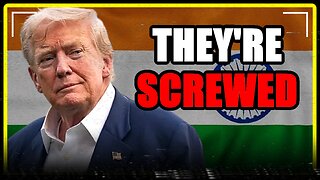 8:14
8:14
MattMorseTV
16 hours ago $4.84 earnedTrump just DROPPED the HAMMER.
23.2K34 -
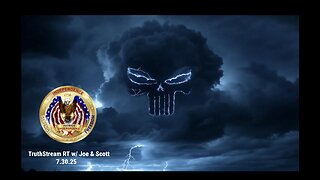 2:47:03
2:47:03
Patriot Underground
19 hours agoTruthStream RT w/ Joe & Scott (7.30.25 @ 5PM EST)
35.8K24 -
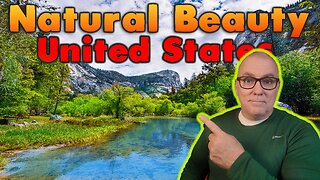 42:04
42:04
World2Briggs
16 hours ago $0.83 earnedRanking All 50 States By Natural Beauty Will Shock You!
3.93K1 -
 42:46
42:46
The Kevin Trudeau Show Limitless
21 hours agoManifest Anything: The Secret Teachings of Kevin Trudeau
2.17K3 -
 LIVE
LIVE
Culture Crack
1 hour ago🔴 FINISHING Games | Metal Gear Rising, Prototype 2, Callisto Protocol + Online Safety Act Discussion
47 watching -
 5:18:09
5:18:09
saiyagamertv
5 hours agoIm ready to RUMBLE lets WIN!!
916 -
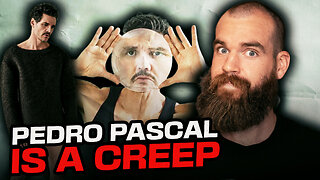 13:05
13:05
IsaacButterfield
1 day ago $0.78 earnedPedro Pascal Needs To Stop
4.45K5 -
 11:25
11:25
Nikko Ortiz
15 hours agoMost Painful Fails
25.4K23 -
 LIVE
LIVE
TheDonOfEverything
7 hours agoLet's Play Wuchang: Fallen Feathers - Part 3 | LIVE ON RUMBLE (WalkThrough)!
69 watching -
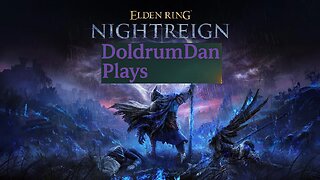 LIVE
LIVE
DoldrumDan
3 hours agoNEW NIGHTREIGN UPDATE?! LEVEL 1 FINAL BOSS CHALLENGE RUN HITLESS INTO ELDEN RING DLC
5 watching